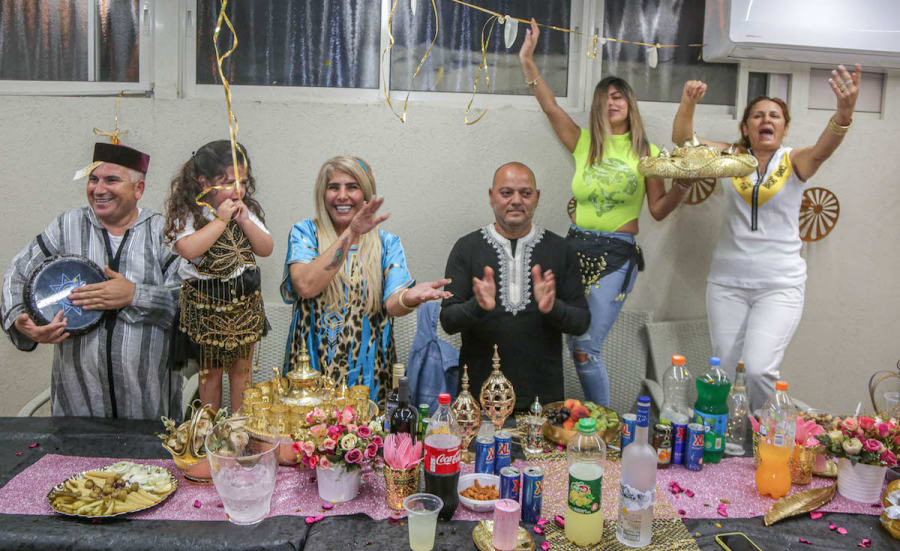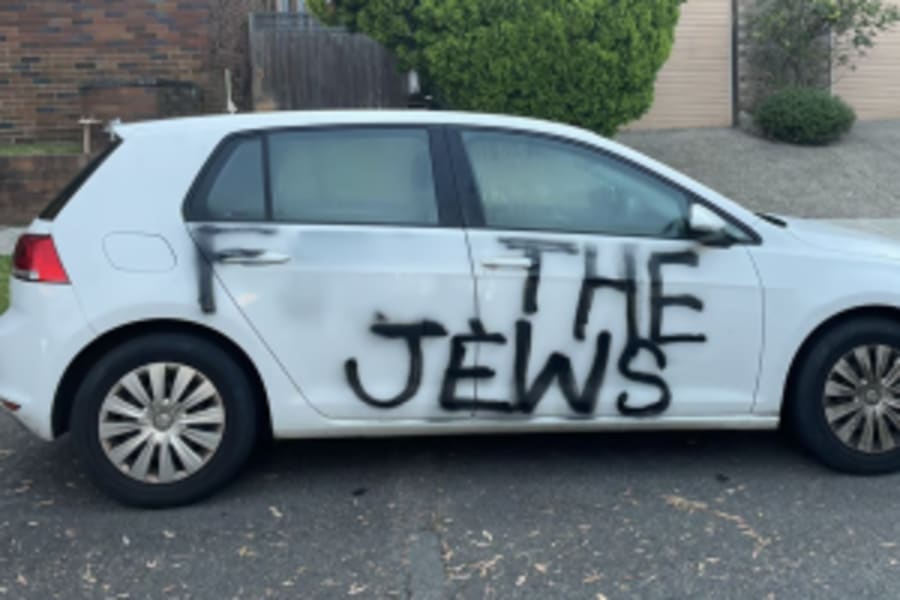Moroccan Jews, in both Israel and Morocco, are a bridge to genuine peace
Moroccan Israelis celebrated the peace agreement between the two countries last week

On Dec. 10, U.S. President Donald Trump announced the fourth Arab-Israeli normalization deal in just four months, this time with Morocco. The deal between Morocco and Israel stands out from the previous three, however.
Israel’s large community of Jews of Moroccan descent and the continued existence of an indigenous Moroccan Jewish community in Morocco are uniquely positioned to build strong bridges of peace between the two nations that extend beyond formal government agreements.
In short, there is a long and natural connection between Morocco and Moroccan Israelis.
In his praise of the Moroccan-Israeli peace deal, Israeli Prime Minister Benjamin Netanyahu emphasized the unique relationship between Morocco and Jews of Moroccan descent.
“Everybody knows the tremendous friendship shown by the kings of Morocco and the people of Morocco to the Jewish community there,” Netanyahu said. “And hundreds of thousands of these Moroccan Jews came to Israel and they form a human bridge between our two countries and our two peoples — of sympathy, of respect, of fondness and love.”
While the Jewish community in Morocco has dwindled from 265,000 in 1948 to approximately 2,000 in 2019, it remains the largest Jewish community in an Arab world largely void of Jews. Unlike the tiny Jewish community in the United Arab Emirates, which mainly consists of recent expats, Morocco’s indigenous Jewish community has ancient roots and constitutes an integral component of Morocco’s diverse society.
Even prior to the Moroccan-Israeli peace deal, Moroccan kings historically protected the local Jewish community and pursued relatively open relations with Israel. Many members of the Jewish community also have strong family ties to Israel.
Moroccan Israelis make up one of the largest and most vibrant Jewish communities in Israel and maintain strong ties to Morocco and the local Jewish community.
Approximately 50,000 Israelis visit Morocco every year, often eager to rediscover their family and cultural roots in the North African country. Once a year, Moroccan Israelis and local Jews visit the Moroccan city Essaouira to celebrate the Hiloula of Saint Rabbi Nessim Ben Nessim, an annual religious event in which Moroccan Jews pray for a good life and the resolution of problems at the tomb of the rabbi. The numbers of Israelis visiting Morocco is likely to increase dramatically with the planned establishment of direct flights between the two countries.
Moroccan Jewish traditions have also come to play an integral role in Israeli culture. Mimouna, a festival brought by Moroccan Jewish immigrants to Israel, is celebrated at the end of the Jewish Passover holiday with traditional sweets and pastries, such as zaben, white almond nougat, and mufleta, crepes dipped in honey and butter. Over time, Mimouna has become such an integrated component of mainstream Israeli culture that Israeli leaders regularly attend the festivities.
Beyond festivals and traditional foods, Moroccan Israelis have left a large imprint on almost every facet of modern Israeli life. Prominent Israelis of Moroccan descent include former IDF chief Gadi Eisenkot, current Minister of Transportation Miri Regev, Deputy Mayor of Jerusalem Fleur Hassan-Nahoum, former Foreign Minister David Levy, retired soccer star Yossi Benayoun and pop singer Maya Bouskilla.
Given the deep historic and cultural ties, Moroccan Israelis and local Moroccan Jews understandably celebrated the new Moroccan-Israeli normalization deal. Moroccan-Israeli Avraham Avizemer, who was born in Casablanca and now lives in the Israeli town Caesarea, captured the enthusiastic sentiments of Moroccan Israelis towards the historic peace agreement.
"It is a great day," he said, adding that Moroccan Jews could now "return to the land where our ancestors lived for over 2,000 years."

The All Israel News Staff is a team of journalists in Israel.














